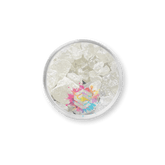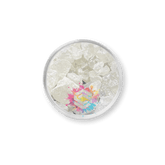OHIO BANS "INTOXICATING HEMP"
🚫 Ohio Bans “Intoxicating Hemp” Products — What You Need to Know
Big news just dropped out of Ohio — and it’s shaking up the hemp and cannabis world.
Governor Mike DeWine has officially ordered a 90-day ban on “intoxicating hemp” products — that means THC gummies, drinks, and other hemp-derived products that can cause a high are temporarily off the shelves starting October 14, 2025.
If you’re a hemp lover, shop owner, or just curious about what’s going on, here’s the breakdown in plain English. 👇
🌿 What’s Actually Getting Banned?
Ohio isn’t banning all hemp — just the intoxicating kind.
That includes anything hemp-derived that contains psychoactive forms of THC, like Delta-8, Delta-10, HHC, or blended “THC-infused” gummies and beverages.
You’ll still see CBD oils, non-intoxicating hemp products, and legal marijuana (sold through licensed dispensaries) — but the gray-area stuff that’s been popping up in gas stations and smoke shops? That’s what this order targets.
🗓️ When Does It Start?
The executive order was signed October 8, and it officially takes effect October 14, 2025.
From that date forward, retailers caught selling intoxicating hemp could face $500-a-day fines.
The order will stay active for 90 days — through January 12, 2026 — unless Ohio’s lawmakers extend it or replace it with a permanent set of rules.
💬 Why Ohio Says It’s Doing This
Governor DeWine says the state is trying to protect kids and consumers.
Officials claim these products are being sold without regulation, sometimes in packaging that looks like candy, and that poison control calls have been rising because of accidental ingestion by minors.
Essentially, the governor’s office believes these hemp-derived THC products slipped through loopholes in the 2018 Farm Bill — which legalized hemp with less than 0.3% Delta-9 THC, but didn’t anticipate the rise of chemical conversions like Delta-8 or Delta-10.
💥 How the Industry Is Reacting
Let’s just say… not everyone’s happy.
Hemp retailers and manufacturers are calling the move an overreach, saying they’ve invested heavily under existing laws and now face major losses.
Some are already talking about lawsuits and challenging whether the governor even has the authority to issue such a sweeping ban by executive order.
Others argue that consumers deserve access to hemp-based THC products that are lab-tested and properly labeled — not pushed into an underground market.
🧭 What Happens Next?
This 90-day “pause” could go a few different ways:
-
🏛 Lawmakers might use this time to create a permanent regulatory framework for intoxicating hemp.
-
⚖️ Courts could step in if lawsuits move forward quickly.
-
🚨 Retailers will need to decide whether to remove products or risk fines.
-
👥 Consumers may shift to licensed marijuana dispensaries — or travel across state lines for similar products.
✋ What’s Not Affected
Good news for hemp and CBD fans — non-intoxicating hemp products remain legal.
So CBD oils, topicals, and compliant tinctures are still allowed.
Also, recreational marijuana (sold legally through Ohio’s dispensaries) is not included in the ban.
🧠 Final Thoughts
Whether you agree with the move or not, this is a big moment for the hemp industry.
Ohio’s decision will likely influence how other states handle hemp-derived THC in the coming months.
For now, Ohio residents should expect fewer Delta-8 and THC-hemp options in shops — and possibly higher demand for regulated marijuana products.
If you’re a hemp business owner in Ohio, now’s the time to:
-
Double-check your inventory.
-
Keep lab reports handy.
-
Stay tuned for what the legislature does next.
📰 Stay Updated
We’ll keep following this story closely and post updates as the situation develops.
If you’re affected by this order — whether you’re a consumer or retailer — drop a comment or email us your experience. We want to hear your story.








![Bulk Delta 9 THCa Crumble for Sale - 96% 1 GRAM / Gorilla Glue #4 [H] Energy](http://ghostvapors.com/cdn/shop/files/Premium_Delta_9_THCA_Bulk_Crumble_for_Sale_Online_Bulk_Discount_Cannabis_Diamonds_for_Sale_Discreet_Shipping_9d4187e8-0887-4deb-b6de-6fc341d69424_165x.png?v=1754322451)



Leave a comment
Please note, comments need to be approved before they are published.